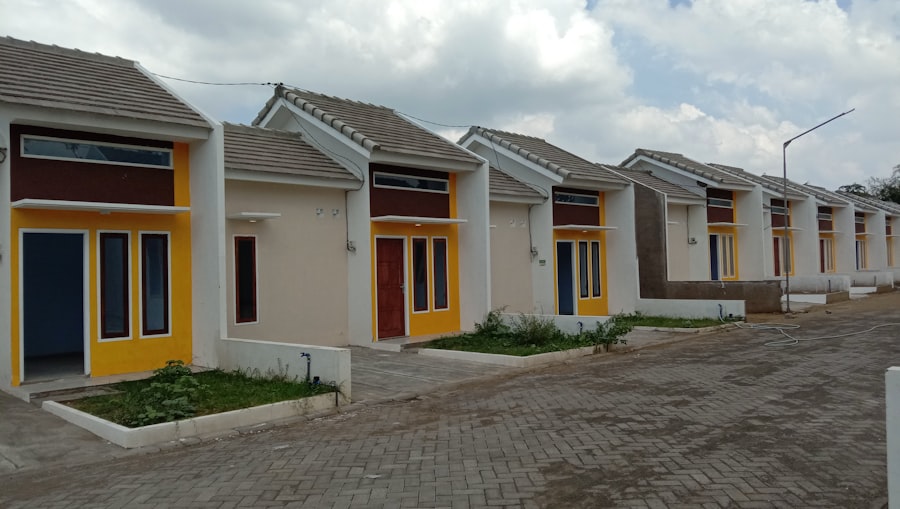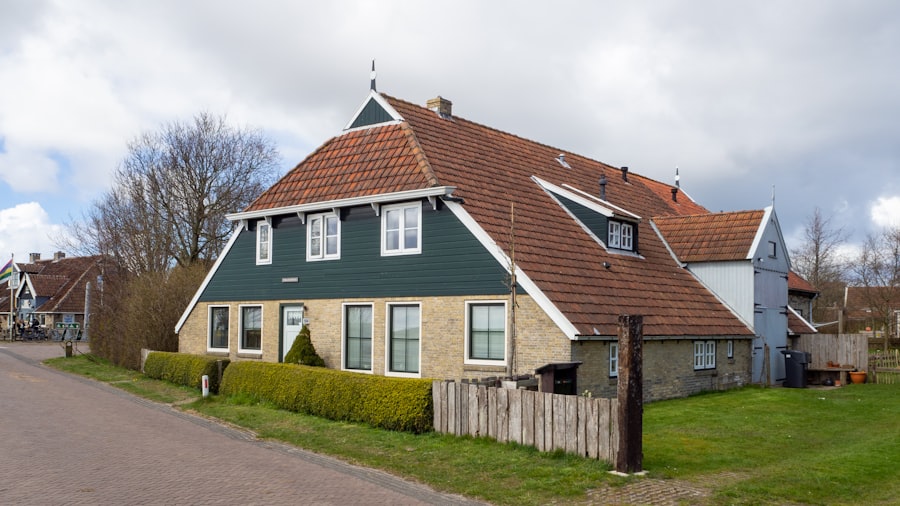Manufactured homes, often referred to as mobile homes, are factory-built structures that are transported to their final location. Unlike traditional homes, which are constructed on-site, manufactured homes are built in a controlled environment, allowing for greater efficiency and consistency in construction. These homes are constructed according to the standards set by the U.S.
Department of Housing and Urban Development (HUD), which ensures that they meet specific safety and quality guidelines. The construction process involves assembling various components, such as walls, roofs, and floors, which are then transported to the designated site for final assembly. One of the defining characteristics of manufactured homes is their mobility.
They are built on a permanent chassis, which allows them to be moved if necessary. However, many homeowners choose to place their manufactured homes on a permanent foundation, which can enhance stability and longevity. This distinction is crucial because it affects zoning regulations, financing options, and insurance requirements.
Understanding these nuances is essential for potential buyers, as they can significantly impact the overall experience of owning a manufactured home.
Key Takeaways
- Manufactured homes offer affordable and flexible housing options, especially when purchased with land.
- Buying land with a manufactured home provides benefits like ownership of the land and potential for customization.
- Key factors to consider include location, land quality, zoning laws, and community amenities.
- Financing options vary and may include specialized loans tailored for manufactured homes with land.
- Proper maintenance and working with knowledgeable real estate agents are crucial for a successful purchase and long-term satisfaction.
Benefits of Buying a Manufactured Home with Land
Purchasing a manufactured home with land offers several advantages that can make it an appealing option for many buyers. One of the most significant benefits is the potential for increased privacy and space. Unlike traditional subdivisions where homes are often closely packed together, owning land allows homeowners to enjoy a more spacious environment.
This can be particularly advantageous for families with children or pets who require room to play and explore. Additionally, having land provides opportunities for gardening, landscaping, or even building additional structures such as sheds or workshops. Another compelling reason to consider buying a manufactured home with land is the financial aspect.
Typically, manufactured homes are more affordable than traditional site-built homes, and when combined with land ownership, they can represent a sound investment. The value of land often appreciates over time, which can lead to increased equity for homeowners. Furthermore, owning land can provide more flexibility in terms of modifications and improvements to the property.
Homeowners can customize their living space without the restrictions often imposed by rental agreements or homeowners’ associations.
Factors to Consider When Looking for Manufactured Homes for Sale with Land

When searching for manufactured homes for sale with land, several critical factors should be taken into account to ensure a successful purchase. First and foremost is the location of the property. Proximity to essential amenities such as schools, grocery stores, healthcare facilities, and recreational areas can significantly impact daily life.
Additionally, considering the local community’s character and culture is vital; some buyers may prefer rural settings while others may seek suburban or urban environments. Another important factor is zoning regulations and land use restrictions. Different areas have varying rules regarding what can be built on a property and how it can be used.
Buyers should research local zoning laws to ensure that their intended use of the land aligns with regulations. This includes understanding whether the land is suitable for a manufactured home and if there are any restrictions on modifications or expansions. Additionally, potential buyers should assess the condition of the land itself—factors such as soil quality, drainage, and access to utilities can all influence the feasibility of placing a manufactured home on the property.
Finding the Right Location for Your Manufactured Home
| Criteria | Considerations | Impact on Decision | Example Metrics |
|---|---|---|---|
| Land Cost | Price per acre or lot, property taxes | Determines affordability and ongoing expenses | Average lot price: 15,000 – 50,000; Property tax rate: 0.5% – 2% |
| Zoning Regulations | Local zoning laws, manufactured home restrictions | Limits where you can place your home | Number of zones allowing manufactured homes: varies by county |
| Utilities Access | Availability of water, electricity, sewage, internet | Essential for livability and convenience | Percentage of lots with full utilities: 70% – 95% |
| Proximity to Amenities | Distance to schools, hospitals, shopping centers | Influences quality of life and resale value | Average distance to nearest hospital: 5 – 20 miles |
| Environmental Factors | Flood zones, soil stability, weather risks | Affects safety and insurance costs | Flood zone risk: Low to High; Soil bearing capacity: 1,500 – 3,000 psf |
| Community Rules | HOA fees, community restrictions, pet policies | Impacts lifestyle and additional costs | HOA fees range: 100 – 400 per month |
| Transportation Access | Proximity to highways, public transit options | Convenience for commuting and travel | Distance to nearest highway: 1 – 10 miles |
Choosing the right location for a manufactured home is a multifaceted decision that requires careful consideration of various elements. One of the primary aspects to evaluate is accessibility. A location that is easily reachable via major roads or highways can enhance convenience for commuting to work or accessing essential services.
However, it’s also important to balance accessibility with tranquility; many buyers prefer locations that offer a peaceful environment away from the hustle and bustle of urban life. The surrounding environment also plays a crucial role in determining the ideal location for a manufactured home. Buyers should consider factors such as proximity to natural features like lakes, parks, or forests, which can enhance recreational opportunities and overall quality of life.
Additionally, evaluating the climate of the area is essential; regions with extreme weather conditions may require specific considerations regarding insulation and foundation types for manufactured homes. Understanding local wildlife and environmental factors can also inform decisions about landscaping and outdoor living spaces.
Financing Options for Manufactured Homes with Land
Financing a manufactured home with land can differ significantly from traditional home loans due to various factors such as classification and zoning. One common option is obtaining a conventional mortgage that covers both the home and the land. This type of financing typically requires that the manufactured home be permanently affixed to a foundation, which helps it qualify as real property rather than personal property.
Buyers should be prepared to provide documentation regarding the home’s compliance with HUD standards and any local building codes. Another financing avenue is through specialized loans designed specifically for manufactured homes. The Federal Housing Administration (FHA) offers Title I loans that allow buyers to finance both the home and improvements made to it without requiring land ownership upfront.
Additionally, some lenders provide chattel loans for manufactured homes that remain classified as personal property; however, these loans often come with higher interest rates and shorter repayment terms. Understanding these options is crucial for potential buyers to make informed financial decisions.
Maintenance and Upkeep of Manufactured Homes

Maintaining a manufactured home requires attention to detail and regular upkeep to ensure its longevity and functionality. One key aspect of maintenance involves inspecting the exterior regularly for signs of wear or damage. This includes checking the roof for leaks or missing shingles, examining siding for cracks or deterioration, and ensuring that windows and doors seal properly to prevent drafts and moisture intrusion.
Regular cleaning and maintenance of gutters are also essential to prevent water damage. Interior maintenance is equally important; homeowners should routinely check plumbing systems for leaks and ensure that appliances are functioning correctly. Regularly changing air filters in heating and cooling systems can improve efficiency and indoor air quality.
Additionally, homeowners should be proactive about pest control measures to prevent infestations that could compromise the integrity of the home. Establishing a maintenance schedule can help homeowners stay organized and ensure that their manufactured home remains in excellent condition over time.
Working with Real Estate Agents to Find Manufactured Homes with Land
Engaging a real estate agent who specializes in manufactured homes can significantly streamline the process of finding suitable properties with land. These professionals possess valuable knowledge about local markets, zoning regulations, and financing options specific to manufactured homes. They can provide insights into neighborhoods that align with buyers’ preferences while also identifying properties that meet their criteria.
A skilled real estate agent will also assist in navigating negotiations and paperwork associated with purchasing a manufactured home with land. They can help buyers understand market trends, ensuring they make informed offers based on comparable sales in the area. Furthermore, agents often have access to listings that may not be publicly available, giving buyers an edge in finding their ideal property.
Making Your Manufactured Home with Land Your Perfect Property
Transforming a manufactured home with land into a personalized sanctuary involves thoughtful planning and creativity. One approach is to focus on landscaping; creating outdoor spaces that reflect personal tastes can enhance both aesthetics and functionality. This might include planting gardens, installing patios or decks, or creating designated areas for outdoor activities such as barbecues or family gatherings.
Interior customization is equally important in making a manufactured home feel like one’s own. Homeowners can consider renovations such as updating kitchens or bathrooms, adding built-in storage solutions, or even changing floor plans if permitted by local regulations. Personal touches like paint colors, decor styles, and furniture choices can further enhance comfort and create an inviting atmosphere that reflects individual preferences.
By understanding the nuances of manufactured homes and considering various factors throughout the buying process, potential homeowners can make informed decisions that lead to fulfilling living experiences on their own land.



